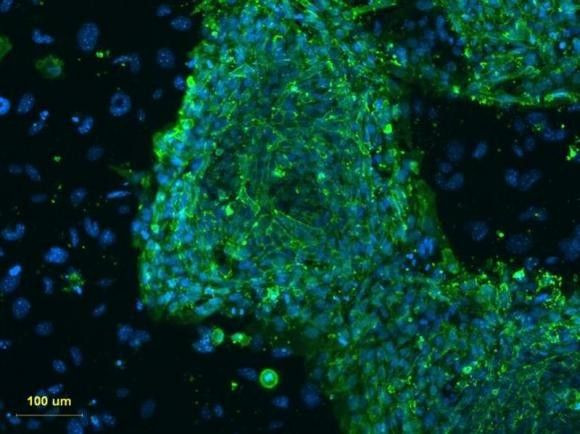World's First Monkey Heart Regenerated with Stem Cells a Breakthrough by Australian Scientist

An Australian cardiologist has regrown the world's first monkey heart out of stem cells. The scientist may be on the verge of unlocking a possible treatment to heart disease.
Dr James Chong, a cardiologist at the Westmead Hospital and Sydney University lecturer, wrote a research paper in collaboration with a team from University of Washington. Dr Chong has been working with U.S. scientists in using stem cells to regenerate or regrow damaged hearts of monkeys.
The study was published in Nature and revealed how human embryonic stem cells improved the heart regrowth when they were transplanted into injured monkey hearts. The findings represented the first time scientists were successful in growing heart muscles derived from stem cells in the treatment of bigger animals. Scientists also found that transplanted cells work with the host tissue rather than against it.
The researchers induced a heart attack in eight macaque monkeys by stopping the blood from flowing into the heart. In three months, scientists found that the hearts were able to regenerate dead tissue by up to 40 per cent. They also had electromechanical coupling with the original host heart.
However, it was not clear in the study if a full recovery was possible using stem cell treatment. Dr Chong said the research was already considered a significant step forward in the search for better ways to treat heart diseases.
He told Guardian Australia that it would be a realistic assumption that the findings of the research can be used in humans. Although he believes a lot of work has to be done, Dr Chong thinks they are "not too far away."
Heart failure is considered a growing problem. Science has improved in treating heart attacks, but it also means many people have damaged heart muscle. According to Dr Chong, the damage may get worse and taking medication will only slow down the process.
The only cure available to heart failure is a heart transplant, but he said it has its issues. The heart, along with the brain, has the least ability to regenerate. Researchers are currently seeking more funds to advance the study to prepare for human clinical trials.




















